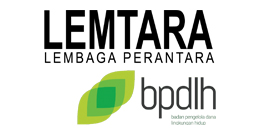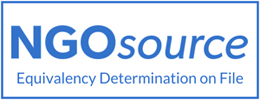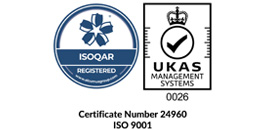Public–Private–Community Partnership
The direction and magnitude of the success of the development will now be determined by how big the intersection of synergies can be achieved by a three development actors. The fact confirms that until now it is still not possible for all listed development plans carried out unilaterally by the government; development of model that involves other stakeholders from the stage of developing, designing and managing is absolutely required..
The public-private-community partnerships (PPCP) approach is a synergistically operational model that used to achieve sustainable development in which the three parties jointly develop a business unit/service of mutual benefit and provide maximum benefit to the wider community.
Within this framework, the private sector will get the long-term benefits in the balanced inclusivity between the chain of producers and consumers. The public sector will benefit with additional resources and the value of investments and the assuredness of participation and ownership of the parties; while the community will benefit with the acquisition of skills, knowledge and new technologies.
Penabulu believe that the public-private-community partnership approach is the best synergistic operational models to achieve the goal of inclusive and sustainable development.
The program will encourage and facilitate the formulation of the awakening of understanding, agreement and mutual support for development plans of the government, private sector and civil society. At the same time, Penabulu will also encourage best management practices to be held in each sector. The development partnership model will be developed on the management start from the smallest scale, ranging from village to district level scale.
Concretely, the program will lead to the establishment of dialogue between the respective parties, through research and studies, seminars/workshops, a forum for discussion, facilitate the establishment of long-term multi-stakeholder operational agreements.
- CSR – CSO Mapping in Indonesia
- Development of Indonesia Corporate Vision on Sustainable Development 2050
- Development of PLTMH, Rehabilitation of Cimari’s Riverside and Strengthening of Local Institutional Business, Pakandangan, District of Pakenjeng, Garut
- Development of Rice Dryers and Grinders, and Strengthening of Local Institutional Business, Pakandangan, District of Pakenjeng, Garut
- Development of “Indonesia Corporate Action Plan 2020” as a derivative of “Indonesia Corporate Vision and Pathways 2050 on Sustainable Development”
- GOSORA : Swakelola Tipe III Gerakan Orientasi Ekspor Untuk Rakyat Sejahtera
- Gender Equality and Social Inclusion in Infrastructure (GESIT)
- LandScale Baseline Report, LandScale Action Plan Draft and Multistakeholder Forum Framework, Sintang District 2022
- Penabulu Foundation, Oxfam Indonesia Program Expansion: Affiliate Strategy 2025-2030
- DKI Jakarta and Bogor-Tangerang-Bekasi
- District of Garut, West Java
- DKI Jakarta
- Nort Maluku
- Probolinggo, East Java
- Sintang District, West Kalimantan
- Measuring CSR | Mapping Funding Potential and Collaboration Opportunities
- Results of action research together with IBCSD supported by HIVOS on 57 companies as respondents on the pattern tendency CSR work scheme as well as space and collaboration CSR and CSOs in Indonesia.
- Indonesia Vision 2050 | Business Sector Contribution for the Future Indonesia
- Trend Indonesia 2050, the first document of the process of joint formulating with IBCSD about Indonesia Vision 2050, corporate vision for the sustainable development of Indonesia, giving a general idea as to what the future condition of Indonesia in business as usual scheme.
- Indonesia 2050 | Looking Forward for Future Indonesia
- A web that present the systematic collection of data and working paper documents of Trend Indonesia 2050.
- Jembatan Tiga | The Bridges of Sustainability
- Service unit of Penabulu Alliance, working to develop models of cooperation/partnership between the government, private sector and civil society in Indonesia.
- Dutch development institution that primarily focusing on economic structural change for sustainable and inclusive society.
- IBCSD (Indonesia Business Council for Sustainable Development)
- One chapter of the WBCSD that consists of a group of companies that operate in Indonesia and has a commitment to promote sustainable development through sustainable economic growth, ecological balance and social progress.
- PT Bank Negara Indonesia (Persero) Tbk. is one of the Indonesian banking services provider owned by the government. Penabulu and BNI 46 work together in the implementation activities of CSR BNI 46, mainly on environmental issues and renewable energy.
- Rekapala (Remaja Kelana Pecinta Alam)
- Nature club and empowering communities organization in Garut, West Java, with a focus on the conservation of natural resources for sustainable ecological justice.
- ACN (Asean CSR Network)
-
- The ASEAN CSR Network (ACN) was established in 2011 with support from the ASEAN Foundation and the Japan-ASEAN Solidarity Fund, in line with the achievement of an ASEAN Community in 2015. Under the ASEAN Socio-Cultural Community blueprint, a document signed by all of ASEAN’s heads of states, ‘Promoting Corporate Social Responsibility (CSR)’ is identified as an integral strategy in ensuring sustainable and inclusive socio-economic development in ASEAN.
KIAT is a partnership between the Governments of Australia and Indonesia to support sustainable and inclusive economic growth through improved access to infrastructure for all people.KIAT works with government and civil society, providing technical assistance to improve infrastructure policy, planning and delivery.KIAT also works with sub-national governments to improve the quality of infrastructure spending and planning.
KIAT regularly procures services – including management construction, engineering, research and technical advisory – to implement large and small projects related to transport, water and sanitation, energy, private sector engagement and gender equality and social inclusion.
KIAT IS SUPPORTED BY THE AUSTRALIAN GOVERNMENT AND IMPLEMENTED BY CARDNO.
Specialization
Infrastructure, Engineering, Water and Sanitation, Gender Equality and Social Inclusion (GESI), Transport, Public Private Partnerships, Grants, Civil Society Engagement, Capacity building, Urban mobility, Solid waste management, Road network development, Infrastructure financing and funding, Road network management, Urban sanitation, Urban water supply
The Rainforest Alliance is an international non-profit organization working at the intersection of business, agriculture, and forests to make responsible business the new normal. We are building an alliance to protect forests, improve the livelihoods of farmers and forest communities, promote their human rights, and help them mitigate and adapt to the climate crisis.
Oxfam Hong Kong dates back to 1976 when volunteers joined hands to open a shop for second-hand goods in Hong Kong and raise funds for anti-poverty projects around the world. Some of OHK first initiatives in the 1970s and 80s were to advocate for justice for Vietnamese refugees who fled to Hong Kong during the Vietnam War, and to help save lives in Ethiopia during the 1984 famine.
In addition to implementing humanitarian responses, OHK prioritizes introducing and contextualizing universally recognized standards, such as the Sphere standards, in China; with our partnership with local authorities, NGOs, and other relevant actors. In the past two decades, OHK has played a leadership role in communication, dissemination and localization of international humanitarian standards and best practices in China, especially on WASH and CASH Programming..




